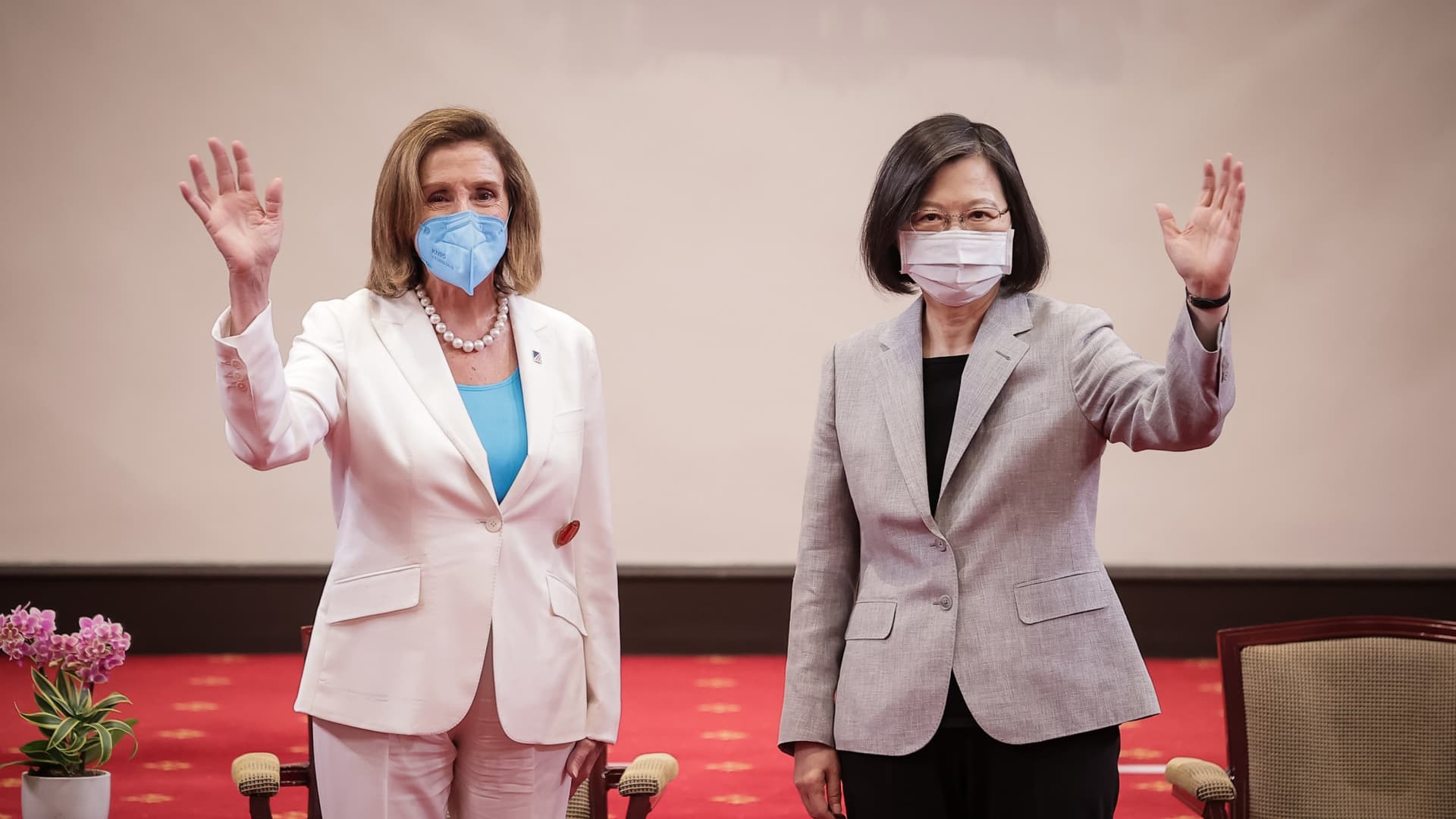
There are “more intelligent ways” to support Taiwan than for U.S. House Speaker Nancy Pelosi to have visited the island, former permanent secretary at Singapore’s Ministry of Foreign Affairs Bilahari Kausikan told CNBC.
The move could undermine efforts by the U.S. and other countries to support Taiwan in the future and has further complicated Taiwan’s political relationship with China, he told CNBC’s “Street Signs Asia” on Friday.
“I think Taiwan needs support and deserves support but has this achieved anything that is worthwhile? I don’t think so. In fact, I think it has made things worse,” Kausikan said.
Ignoring weeks of warnings from Beijing, Pelosi visited Taiwan and met President Tsai Ing-wen on Wednesday. Taiwan is a self-ruled democracy, but Beijing considers the island a breakaway province and says it has no right to conduct foreign relations.
Pelosi’s visit makes her the highest-ranking U.S. official to visit Taiwan in 25 years.
China launched military drills in the airspace and waters around Taiwan the next day. On Friday, Beijing announced sanctions against Pelosi and her immediate family members, though the content of those sanctions was unspecified.
Speaker of the U.S. House Of Representatives Nancy Pelosi (D-CA), left, poses for photographs with Taiwan’s President Tsai Ing-wen, right, at the president’s office on August 03, 2022 in Taipei, Taiwan.
Handout | Getty Images
“What Taiwan needs is certain capabilities … what Taiwan needs is diplomatic support. What Taiwan does not need is a visit, that may give you a feel-good moment … and after that, may deter other countries from visiting Taiwan, if they look at China’s robust response,” Kausikan said.
Whether the visit was good or bad for Taiwan remains “at least an open question,” he said. “There are many other ways, more intelligent ways, less risky ways of giving Taiwan the support it needs and deserves.”
Kausikan said the visit could upset the status quo in the region and that prompted China to react in a “semi-hysterical way,” adding that it “gave China an excuse” to fire missiles close to Taiwan.
You have an increasingly febrile, fractious relationship between the two countries. It simply takes off a match to light a flame, which then catches fire more or less.
Kevin Rudd
Former Australian Prime Minister
Still, the ex-diplomat maintained that a conflict between China and Taiwan is unlikely.
China is not eager to attack Taiwan and broad military consensus has suggested that China does not yet have the capability to launch a full scale “amphibious” military operation, he said.
“And don’t forget, for all the bluster that China put out before — during and after the visit — it still failed to deter the visit,” Kausikan said.
But accidents happen and they have in the past, he added.
Former Australian Prime Minister Kevin Rudd said that it’s the potential accidents that are most concerning.
While an immediate war is not likely, Rudd is concerned the Chinese may see Pelosi’s visit as a U.S. walk-back from its 1982 agreement to recognize the “one China policy.”
“Then I think we’re in a whole new world,” he said on CNBC’s “Capital Connection.”
“You have an increasingly febrile, fractious relationship between the two countries,” he said. “It simply takes off a match to light a flame, which then catches fire more or less.”
“That is what I’m concerned about — not tomorrow, not next month, but certainly in the years ahead, particularly as [Chinese President] Xi Jinping is likely to be re-elected or reappointed.”
A war down the line can’t be completely ruled out, however, especially when U.S.-China relations are unlikely to recover in the next decade, Rudd said.
